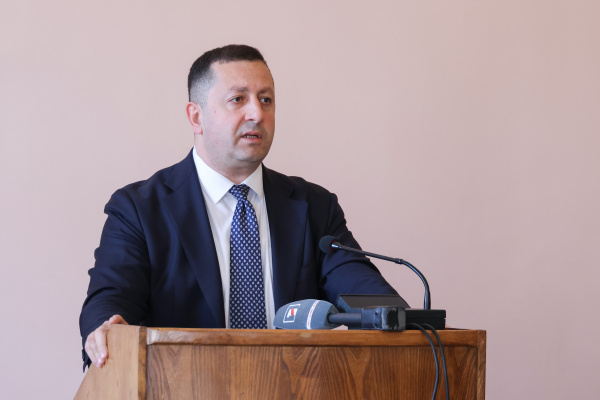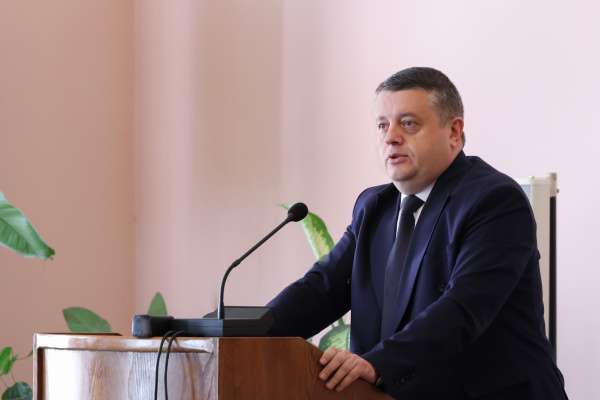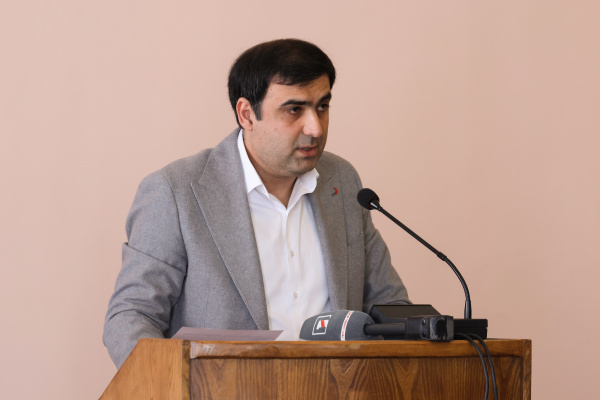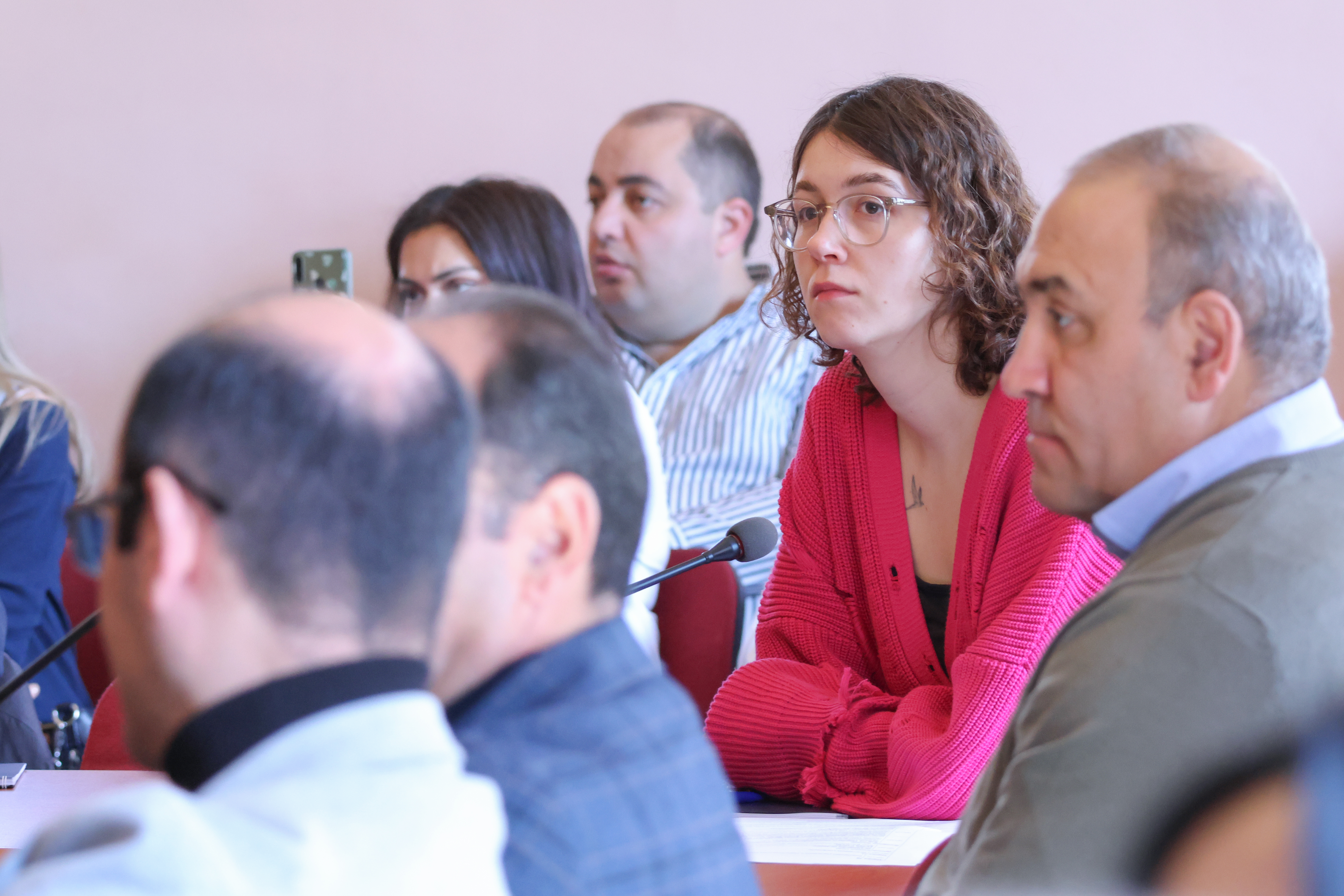March 21, 2025 | 14:31
Science
Education
Events
Environmental, hydrometeorological, and climate change issues on international conference agenda
An international two-day conference dedicated to the World Days of Forests, Water and Meteorology has commenced at Yerevan State University. During the conference, scientists from Armenia and abroad are presenting their reports on scientific achievements in hydrometeorology, environmental monitoring, and ensuring ecological safety, while addressing the pressing issues in hydrometeorology, the current state of the environment, and the critical challenges of climate change.

The two-day international conference titled "Current Issues in Hydrometeorology and Environmental Monitoring in the Context of Climate Change: Adaptation, Sustainability, and Production Processes" features not only scientific presentations but also insights from professionals in the field on existing challenges and their possible solutions. Additionally, the conference addresses key priorities in environmental and hydrometeorological education.
YSU Rector Hovhannes Hovhannisyan, emphasizing the importance of discussing hydrometeorological issues with international researchers, noted that nowadays, nearly all sectors—including healthcare, aviation, agriculture, transportation, and emergency response services—are affected by hydrometeorological conditions.

"The role of hydrometeorologists in a country's socio-economic development is immense. Meteorologists help us understand how climate changes occur and, most importantly, what measures can be taken to prevent impending disasters. Without exaggeration, meteorology stands at the forefront of the fight against climate change," stated Hovhannes Hovhannisyan.
YSU Rector also referred to historical milestones, highlighting that on March 23, 1950, the World Meteorological Organization (WMO) was established, uniting experts from various countries in this field.
"Under the auspices of the United Nations, the WMO has designated March 23 as World Meteorological Day. This day honors those who use mathematical models to forecast weather changes. Additionally, the UN General Assembly has declared March 22 as World Water Day, an initiative first proposed during the 1992 United Nations Conference on Environment and Development in Rio de Janeiro," he added.
Discussing the main objectives of World Water Day, YSU rector emphasized its focus on addressing global access to drinking water, raising awareness about water conservation, and engaging countries worldwide in related activities.
"World Water Day aims to highlight the significance of water for humanity’s prosperity. Water can unite people, while its scarcity can lead to conflicts," he stressed.
Director of the Hydrometeorology and Monitoring Center, Levon Azizyan, noted that while March 21 is recognized globally as International Day of Forests, March 22 as World Water Day, and March 23 as World Meteorological Day, in Armenia, for a long time, only Meteorological Day was officially recognized as a holiday by the government.

"Recognizing the vital role of professionals in these fields, the Ministry of Environment initiated a proposal, and in 2022, the Armenian government officially acknowledged the significance of foresters and hydrologists. Since then, March 21 has been marked as Forester’s Day, and March 22 as Hydrologist’s Day in Armenia," he stated.
Levon Azizyan expressed hope that closer collaboration with YSU will foster the development of the hydrometeorology profession in Armenia.
"In recent years, the professions of meteorologists, hydrologists, and foresters have become almost endangered, with very few graduates in these fields. We must take steps to revitalize these professions. There is hardly any sector where hydrometeorology does not play a crucial role," he added.

Dean of YSU Faculty of Geography and Geology, Sargis Kelyan, emphasized that a clear understanding of sustainable development enables urgent action in addressing climate change and its consequences. These efforts have significant social implications, including reducing water scarcity and poverty, improving public health and well-being, ensuring access to clean and affordable water, promoting clean energy production, and enhancing the resilience of cities and communities to climate change.
"Weather and climate forecasting contribute to increasing food production and combating hunger. Integrating epidemiological and climatic data helps understand and control diseases that are sensitive to climate changes. Moreover, early warning systems aid in poverty reduction by enabling communities to prepare for extreme weather events and mitigate their impact," Sargis Kelyan noted.
He also pointed out the sharp rise in the frequency of natural disasters in recent decades, with 90% of these events linked to weather or water-related causes.
"Such circumstances demand the presence of hydrometeorological specialists, and in Armenia, these professionals are trained only at YSU Faculty of Geography and Geology. Our faculty collaborates closely with numerous state, public, and scientific institutions, including the Ministry of Environment, the Hydrometeorology and Monitoring Center, Zvartnots Aero Meteorological Center, the National Academy of Sciences, and others," he added.
The international conference has gathered researchers from abroad, including France, Germany, and Russia, while approximately 35 scientists are presenting their reports remotely.













